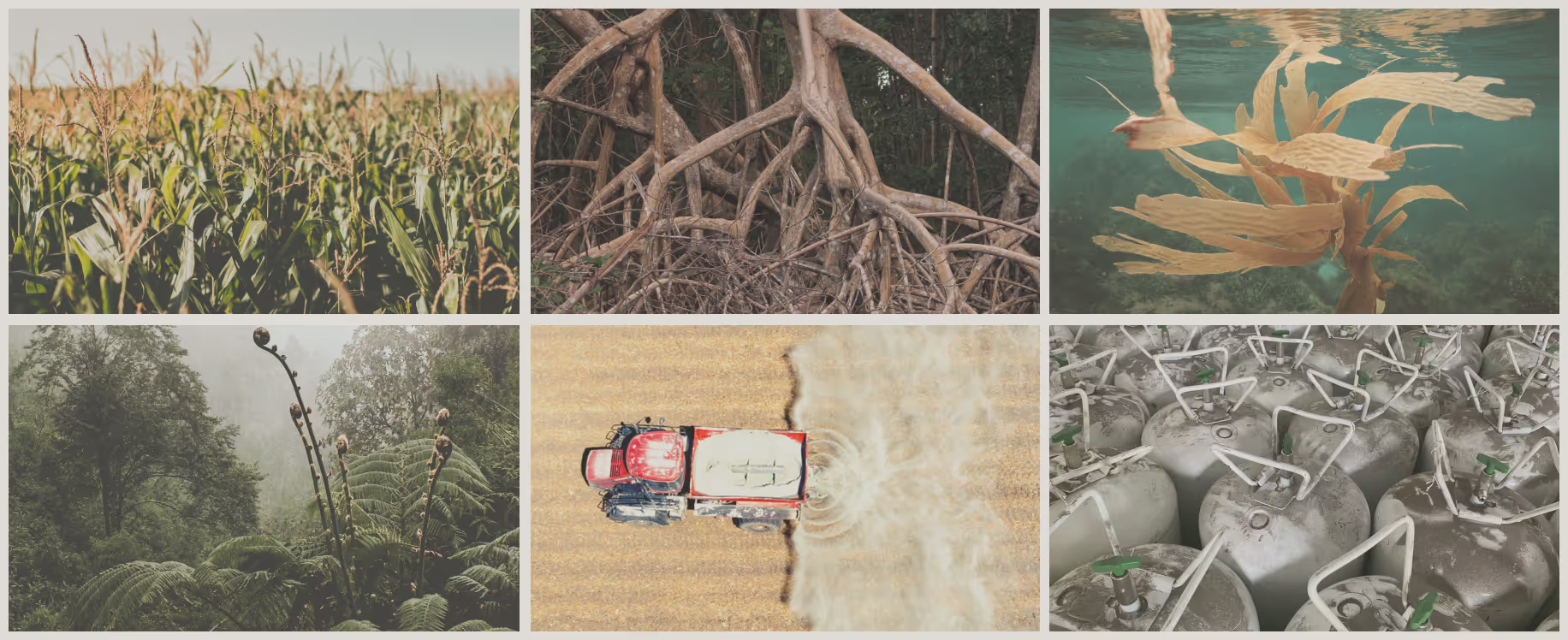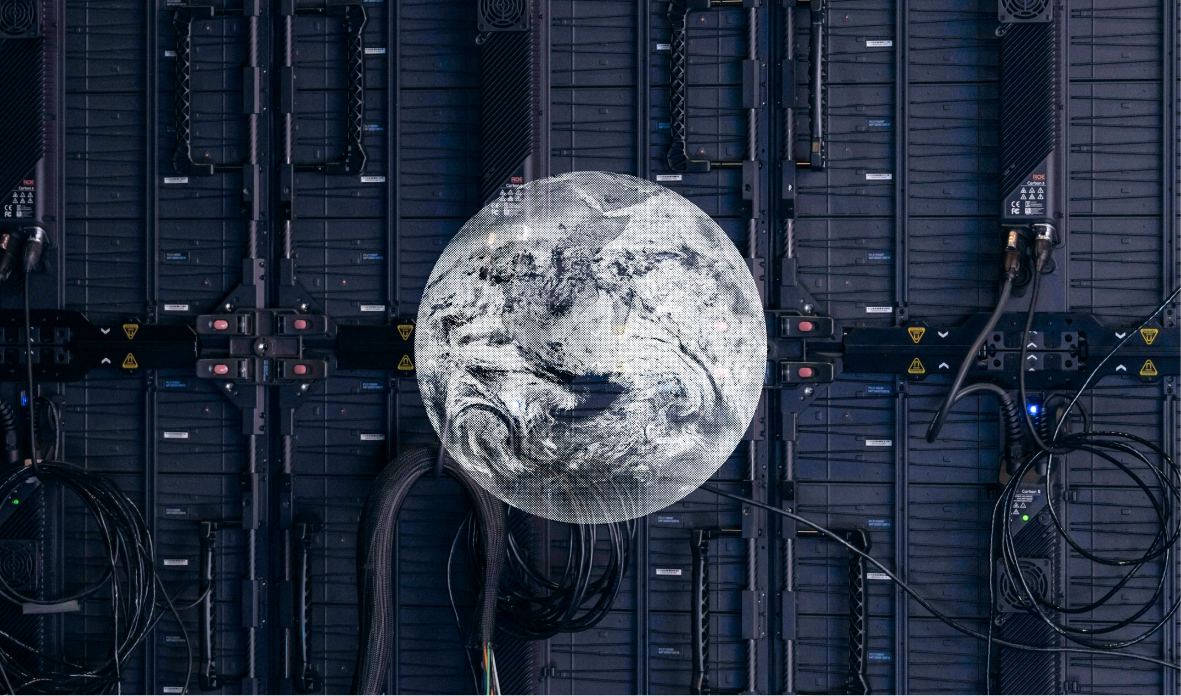Portfolio Updates: New Carbon Pricing and Offset Partners

Join the community





Since April 2021, the Commons community has made tremendous strides, offsetting emissions through a portfolio of trusted partners. The Commons community has purchased over 73,201 tons of carbon offsets, making an impact equivalent to taking 16,289 cars off the road for a year.
In this biannual, portfolio update, we'll cover some updates to how we price and account for carbon, as well as some innovative, new offset partners to further diversify our portfolio.
Increasing Offset Quality in 2024
With the purchase of January offsets, Commons is increasing the price of carbon from $25 to $35 per ton. This price reflects the increasing quality of carbon offsets included in the portfolio, as well as a shift towards a higher proportion of carbon removals.
Carbon has historically been underpriced. The U.S. Social Cost of Carbon (SCC) is currently around $51 per ton and represents the economic cost of damages from an extra ton of carbon emissions.
While the cost of carbon is increasing, we're rolling out more up-to-date carbon accounting data, which will lower the average user’s footprint by about 20%, depending on their spending patterns.
Introducing new offset partners
After evaluating a new round of cutting-edge offset projects, we’re introducing three exciting projects to the Commons Offset Portfolio.

Tradewater: Refrigerant Destruction
Fluorinated refrigerants have a global warming impact that is up to 9,000 times greater than carbon dioxide.
We are partnering with Tradewater to support projects that are safely collecting and destroying these gases, preventing their release into the atmosphere and accelerating the switch to more climate-friendly alternatives.
We selected them because of their adherence to rigorous third-party protocols from the American Climate Registry and because their project activities are funded exclusively by carbon offset revenue.

Delta Blue Carbon: Mangroves
Marine ecosystems can store up to 5x more carbon than land-based forests.
We are partnering with Delta Blue Carbon to support the restoration and protection of 350,000 hectares of degraded mangroves and coastal wetlands in the Sindh province of Pakistan. We selected Delta Blue Carbon because of its demonstrated track record of mangrove restoration and its partnership with communities and government.
Learn more about Delta Blue Carbon →

Eion: Enhanced Rock Weathering
Carbon dioxide is naturally captured over hundreds of thousands of years when rocks erode and react with the air. We are partnering with Eion to support their innovative efforts to drastically speed up this process by crushing rock and partnering with U.S. farmers to spread it on their farmland. We selected them because of their scalable, pioneering approach, their dedication to scientific rigor, and their direct benefits to US farming communities.
More updates to the Commons Offset Portfolio
Pausing Investments in Soil Carbon
As we reevaluated our portfolio for 2024, we decided to remove the two soil carbon sequestration projects (Nori and Grassroots Carbon) from our portfolio. This decision primarily stems from the challenges of accurately measuring soil carbon sequestration and the short duration of these projects.
Commons still recognizes that soil carbon is a critical carbon sink and is open to considering soil carbon projects in the future, should they address these challenges.
Continuing Investments in Forestry and Carbon Dioxide Removal
We’re excited to continue our community’s support of Charm Industrial (bio-oil sequestration), Running Tide (kelp sinking), and Pachama (forestry). These three partners have consistently delivered carbon credits and removals over the duration of our partnership.
Partner Spotlights
Updates from Charm Industrial
Charm Industrial turns waste from agricultural harvests and forest fire management into carbon-rich bio-oil, then pumps it into underground disposal wells, where it’s stored safely and permanently. Here are some highlights from their work from the past few months:
- Scaled injection processing: Charm’s injection site in Kansas can now process thousands of tons of bio-oil each year. See the photo of their new holding tanks above.
- Brought a new pyrolyzer online: Charm received a new pyrolyzer at its recently launched plant in Colorado. This pyrolyzer was manufactured and delivered in a record three months, accelerating Charm’s ability to iterate on future designs and improve pyrolysis capabilities.
- Increased pyrolyzer efficiency: Currently, Charm services its pyrolyzers in between pyrolysis sessions. Charm successfully increased the run time of their pyrolyzers between service periods, increasing the yield of bio-oil they can generate in the same timeframe.
- Verified removals: Charm partnered with Isometric to get rigorous third-party verification on their removals, further demonstrating their commitment to quality and transparency.
- Wildfire Risk Reduction Deployment: Charm completed a deployment of its pyrolyzers in Redding, California, where it processed dry underbrush from the forest into bio-oil. Learn more about this project in Charm’s video here.
Updates from Running Tide
Running Tide removes carbon by growing kelp in the open ocean and sinking it, permanently storing kelp carbon on the ocean floor. The team is continuing to make progress with its current deployment in Iceland.












